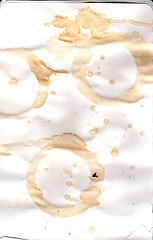 Can we ask oursevles questions without trying to answer with too much finality? In our busy, goal oriented society, it’s considered unproductive. We believe we need to fill in all the blanks.
Can we ask oursevles questions without trying to answer with too much finality? In our busy, goal oriented society, it’s considered unproductive. We believe we need to fill in all the blanks.
There are questions which don’t necessarily have clear answers, at least right now. Who am I? What will become of me? Who is the perfect mate for me? What do I really want from life? Why am I like I am? Even questions like, What should I do today? can cause a compulsive filling in of the blank. Most of us would immediately jump to answer these, thinking we know exactly what the answers are or should be. Or perhaps it’s what we want them to be.
The process of being alive, of being human, rarely has a “fill in the blank” simplicity. The answers change. They evolve. Sometimes they are better left blank. Filling in the blanks may actually hurt us. It can create labels which limit us, box us in. If I answer the question Who am I? with “I am a selfish person, because I’ve been told that, and because I tend to take care of myself before others”, I inflict more damage than good. But if I say “I will acknowledge what others think of me, and I will take care of myself, but I know I am aware of others well being. I just don’t wrap my life around it. My way of showing that I care it different.” Then I leave open the possibility of change. The answer is more positive.
Even better is to simply leave the blank empty and watch its shape as we allow our thoughts to filter in and out of the space created by the question. Then more possibilities are allowed into the equation. The blanks can blossom with a creative opening of new answers we had never considered before.
When we face stress, we tend to label the stress as bad, something to be avoided as much as possible, something to minimize. This kind of filling in the blanks creates a gap in our motivation. It prevents us from flowing with the moment and the freedom to process the stressful situation with alacrity. By simply leaving those blanks empty we prevent blocking our own progress with negative thoughts. The shape of the blanks may loom and threaten us, but we can smile and watch as the clouds pass leaving our minds clear to tackle the issues at hand.
Krishnamurti was famous for answering his followers questions with questions. Tonally a question has a lift at the end, allowing it to remain unfinished, open. Rhetorically a question leaves the answer soft and malleable, ready for adjustments, or more questions. Few philosophical questions in life have definitive answers. Why not allow the answers to ebb and flow like the tide, which brings in new answers and uncovers others when leaving?

I’d be better off leaving the spaces blank, for sure, rather than wearing out my eraser the way I have been. Also, this post reminds me of why I dislike those well-known personality tests, like the Myers-Briggs, a couple of which I took recently. Isn’t it interesting that on two different days my results revealed two different personalities?
And I like the idea of leaving stress unlabeled. Why not allow it to motivate, to mold, to inspire? It can provide a reason to get out of bed in the morning. As you say, we perceive stress as negative, as something to avoid, yet just imagine how dull life might be without it.
Hugs,
Betty
Hi Betty- I’m glad the comment spam guards have finally recognize you and allow you access!
I can see your point about the personality tests. They are in a way attempting to define you, fill in the blanks. But they might also help you figure out the “right” questions to ask about yourself, not necessarily answer. “Could I be such and such a way?”
Your angle on the stress issue is novel; life would be “dull without it”. That view at least helps alleviate inevitability of stress.
The blanks are beautiful spaces to enjoy without cluttering them with forced answers.
Thanks for stopping by.
D